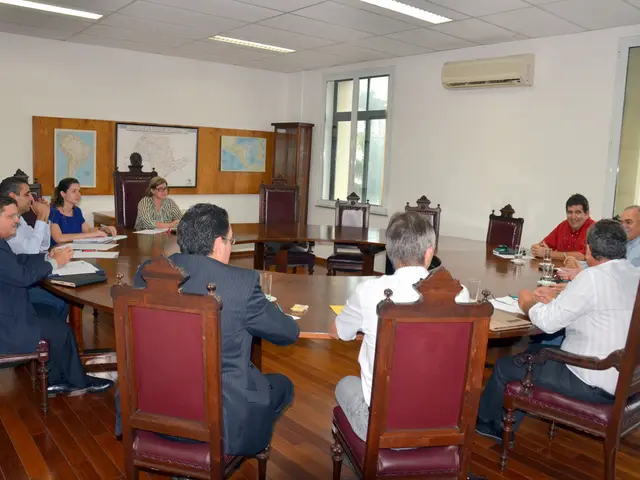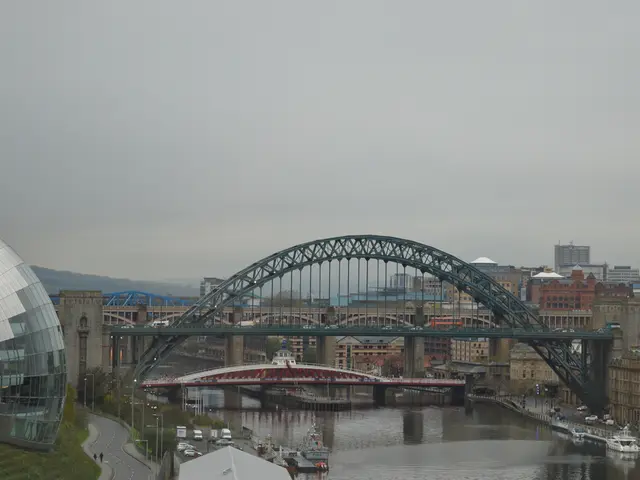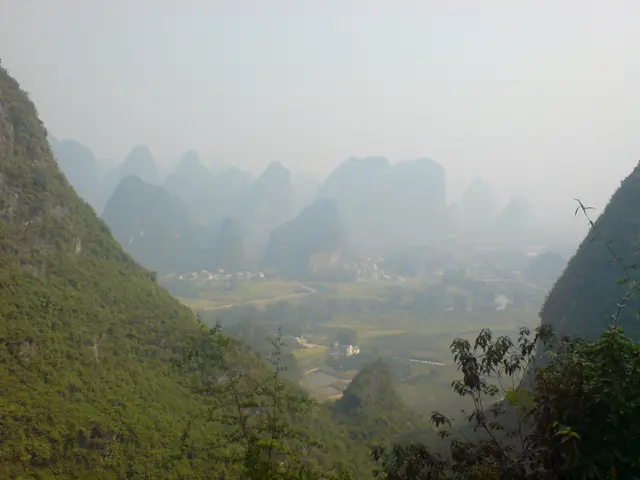Ex-leader of Gabon's junta, Oligui, officially takes office following his electoral victory.
Gabon's New Leader, Brice Oligui Nguema, Embarks on His Term
Wearing a dark civilian suit, Brice Oligui Nguema, the 50-year-old military leader turned president of Gabon, took the oath of office in a grand inauguration ceremony attended by 16 African heads of state. The event took place at the Angondje stadium in Libreville following Oligui's landslide victory in the post-coup presidential election.
Spectators in T-shirts and flags emblazoned with Oligui's image filled the 40,000-capacity stadium. The guest list included Gambian President Adama Barrow, Senegalese counterpart Bassirou Diomaye Faye, and Equatorial Guinea's Teodoro Obiang Nguema Mbasogo, among others.
The buildup to the ceremony saw tense traffic and meticulous preparations by hundreds of workers, transforming the streets and main roads leading to the stadium. The event marked the first time a Gabonese presidential inauguration was held before such a massive audience.
After years of military rule, Gabon is now one step closer to constitutional order, with legislative elections set for the autumn[1]. Central African Republic President Faustin Archange Touadera hailed the occasion, saying, "From now on, Gabon is a full member of democratic states and will forever be an example of successful transition."
However, Oligui's path to leading this oil-rich, yet heavily indebted nation is fraught with challenges. The country struggles with an ageing electrical network, high youth unemployment, insufficient roads, and a projected public debt of 80% of GDP by the end of this year[1]. While Oligui presented himself as a "builder" during the transition, he must now put his words into action to address these issues[2].
The Road Ahead
Transitioning from military rule to a democratic system is no easy feat, and Oligui must tread carefully to secure his governance's legitimacy within Gabon and on the international stage. The lingering influence of the Bongo family could complicate domestic political and social dynamics[1].
Oligui also faces economic hurdles, including revamping the ailing infrastructure, diversifying the economy beyond oil, and managing corruption to drive sustainable growth and tackle poverty[1].
Reconciliation among different factions within Gabonese society is essential to minimize tensions and foster national unity, given the violent origins of Oligui's presidency[1]. Building trust and promoting inclusivity will play crucial roles in the process.
Success for Oligui will hinge on his ability to navigate these challenges effectively, ensuring stability, economic growth, democracy, and social cohesion for Gabon's future[1][2].
[1] Enrichment Data: Overall Analysis of the Gabonese Political and Social Landscape[2] Enrichment Data: PresFullMillis:1635737579852,snippet:Brice Oligui Nguema is the newly sworn-in president of Gabon, having led the military coup that ended the nearly 55-year rule of the Bongo family in 2023. He recently won the country's first post-coup presidential election with nearly 95% of the vote, indicating significant support in his bid for leadership. Background: Brice Oligui Nguema is a military leader who was instrumental in the coup that ousted the Bongo regime in 2023. His military background could influence his leadership style and policies. Political Promise: After his election victory, he emphasized a commitment to "restore dignity to the Gabonese people," suggesting a focus on reform and renewal.
- As Gabon transitions from a military regime to a democratic system, President Brice Oligui Nguema must address ongoing issues such as Africa's war and conflicts, politics, and general news, including fraught domestic political dynamics, economic hurdles, and the need for reconciliation among different factions within Gabonese society.
- To secure his governance's legitimacy both domestically and internationally, President Oligui must prioritize diplomatic engagement on the continent, focusing on negotiations with other African leaders to manage potential conflicts and foster regional cooperation in addressing common challenges like poverty, corruption, and infrastructure development.








